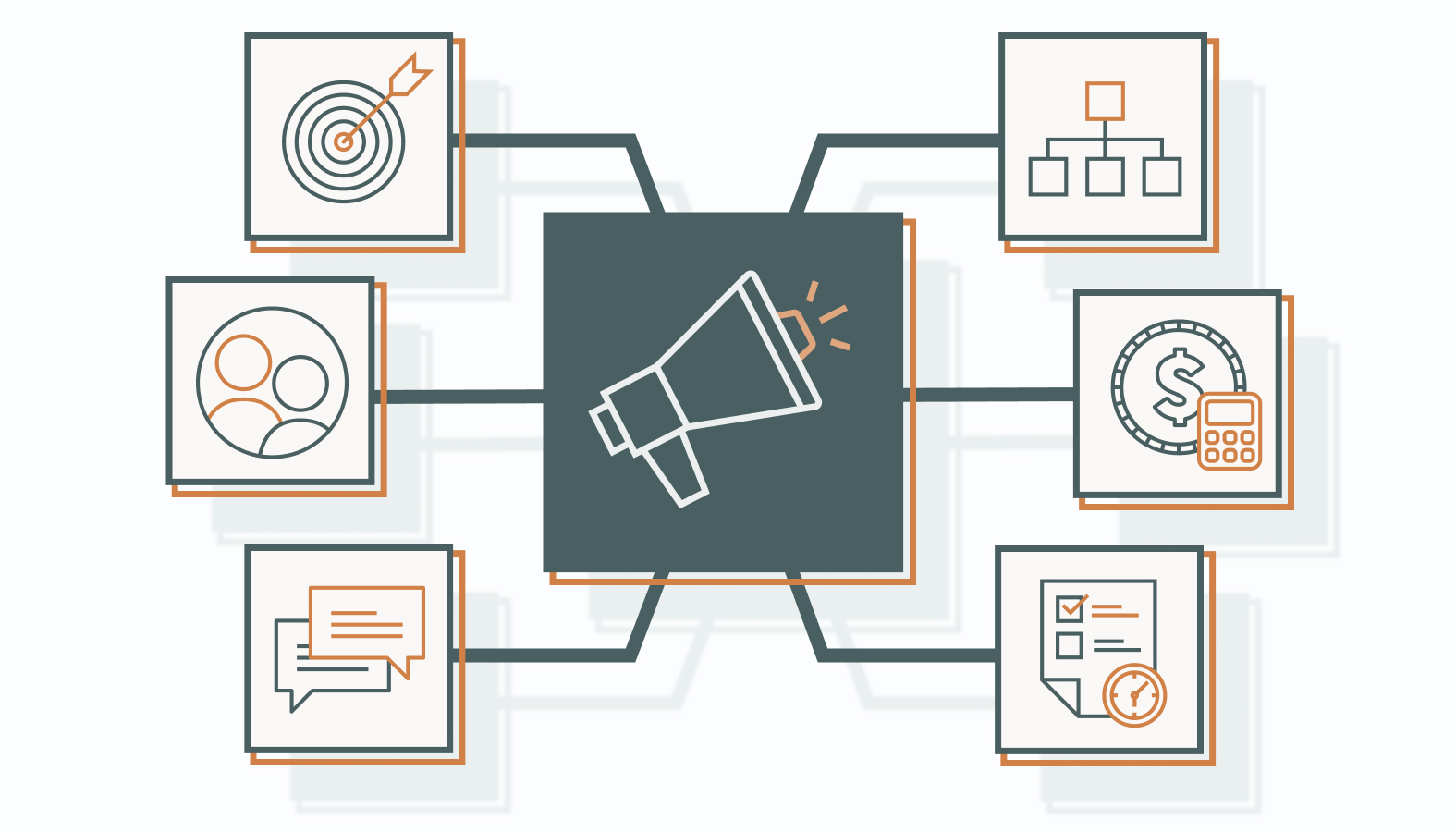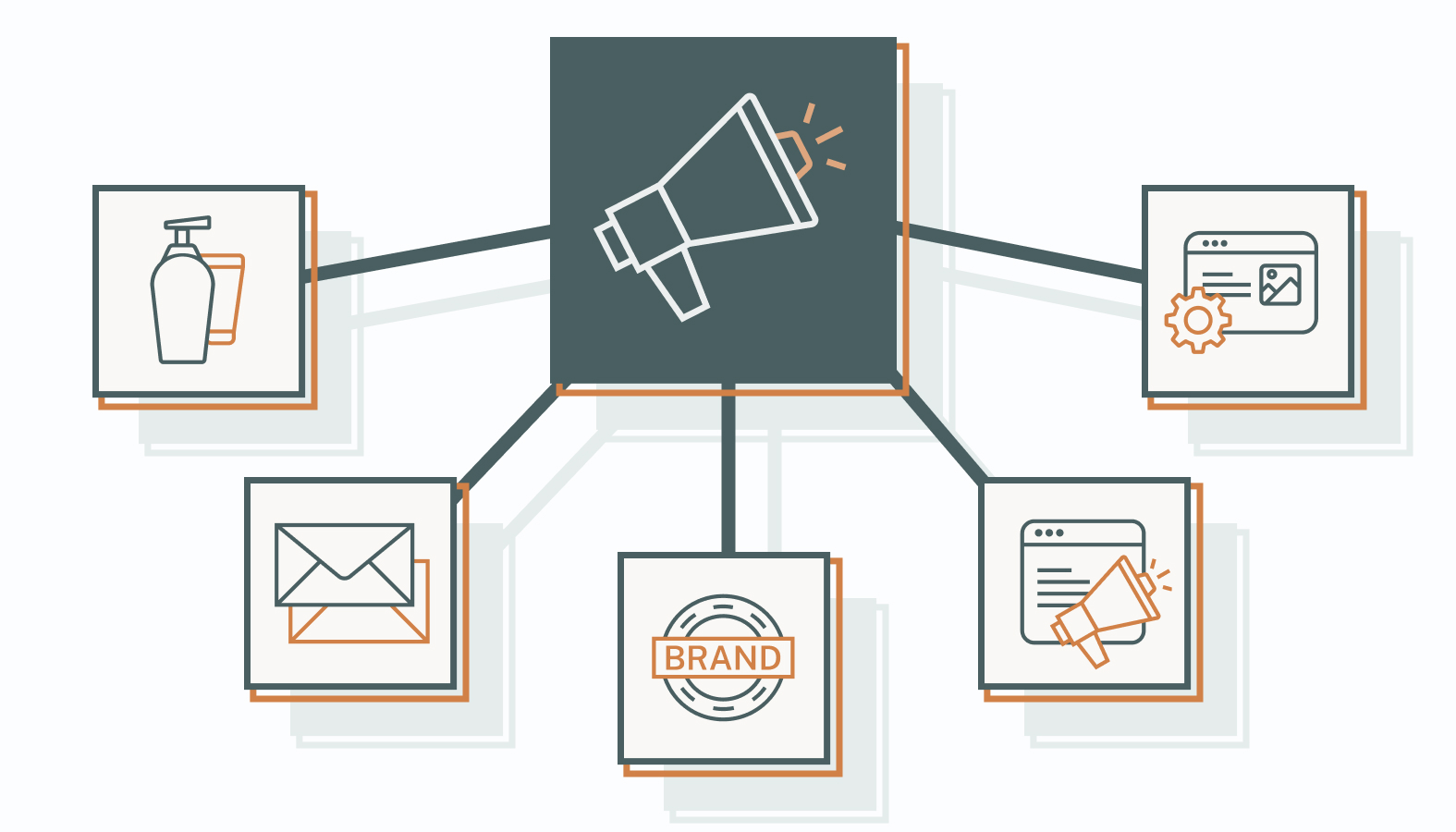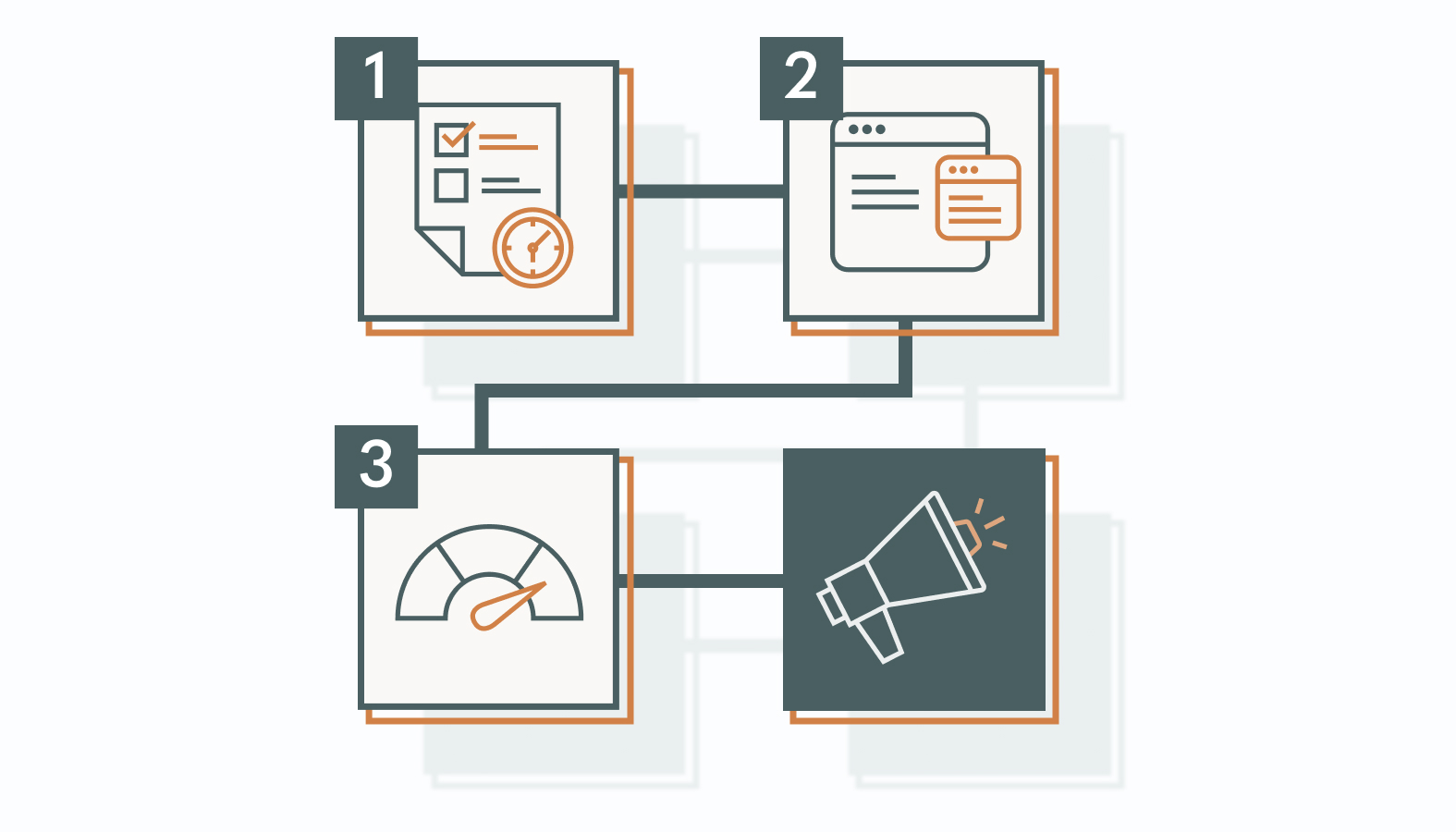Campaign management is the backbone of any effective marketing effort. It aligns all your initiatives with your business goals.
This guide will help you understand the core elements of successful campaign management. From setting clear objectives and knowing your audience to choosing the right channels and measuring results, we’ll cover everything you need to create effective campaigns.
By the end, you’ll learn how to design marketing strategies that not only reach your target audience but also achieve your business objectives. Let’s simplify the process and set your campaigns up for success.
Campaign Management 101
Before we dive into the details, let’s understand the basics of campaign management and its importance in marketing.
What Is Campaign Management?
Campaign management is the process of carefully planning, executing, tracking, and analyzing a series of marketing initiatives—referred to as campaigns—to achieve specific business goals, such as increasing brand awareness, generating leads, driving sales, or boosting customer loyalty.
Here’s what each stage involves:
- Planning: Developing a strategy that outlines objectives, target audiences, messages, timelines, and budgets
- Execution: Implementing the strategic plan using various marketing channels, tools, and techniques
- Tracking: Continuously monitoring campaign performance with key performance indicators (KPIs) and analytics
- Analyzing: Evaluating the results to assess the campaign’s effectiveness and identify areas for improvement
Why Campaign Management Matters in Marketing
Campaign management is essential for successful marketing for several reasons:
- Alignment With Business Objectives: It connects marketing efforts to overarching business goals, maximizing ROI and supporting long-term success.
- Target Audience Engagement: Through detailed planning and segmentation, it ensures marketing messages reach the right audience, at the right time, through the right channels. This boosts engagement and conversion rates.
- Resource Optimization: It wisely allocates budgets, staff, and tools for efficient and effective marketing.
- Performance Measurement: It tracks and analyzes metrics, allowing for real-time adjustments and better results.
Overall, campaign management unifies various marketing elements into a coordinated effort that drives results and business growth.
Essential Components of a Successful Marketing Campaign
Creating a successful marketing campaign requires understanding and integrating key elements. Each part ensures the campaign is well-coordinated and effective in reaching its goals.
Setting Clear Campaign Objectives
The necessity of setting clear, measurable campaign objectives can’t be overstated. They provide direction for all campaign activities and ensure every effort contributes to achieving your business goals. Clear objectives also help measure success and find areas for improvement.
Use the SMART criteria to set goals. They should be:
- Specific: Clear and specific, leaving no room for ambiguity
- Measurable: Quantifiable, enabling you to track progress and measure success
- Achievable: Realistic and attainable with the resources available
- Relevant: Aligned with your broader business objectives
- Time-bound: Accompanied by a clear timeline, with deadlines and milestones
For example, instead of a vague goal like “increase website traffic,” a SMART objective would be “increase website traffic by 20% in the next three months through targeted social media campaigns and SEO.”
Knowing Your Target Audience
Identifying and segmenting your target audience is paramount. Understand who your campaign is for and tailor your message to them.
Start by segmenting your audience based on:
- Demographics: Age, gender, income, education
- Psychographics: Interests, values, lifestyles
- Behavior: Purchasing habits and brand engagement
Creating detailed buyer personas can be immensely helpful in this process. These personas represent different segments of your target audience and help you craft messages that directly address their needs and preferences.
Crafting an Effective Marketing Message
To connect with your target audience, your message should be:
- Clear: Avoid jargon. Make your message easy to understand.
- Relevant: Address your audience’s needs and pain points.
- Emotionally Appealing: Evoke emotions to drive engagement and action.
- Consistent: Keep the tone and style uniform across all channels.
Align your marketing message with your campaign goals and audience needs. For example, if your goal is to drive sign-ups for a webinar, your message could highlight the benefits and exclusive insights for participants.
Choosing the Right Channels and Tactics
Selecting the right marketing channels is key to reaching your target audience. Consider both digital and traditional media based on your audience’s preferences and behavior.
Digital channels include social media, email, content marketing, SEO, and paid ads. Traditional media covers print, radio, and TV.
Within each channel, use tactics that fit your goals. For example, use targeted social media ads to drive traffic to a landing page or SEO to improve organic search rankings.
Planning Your Budget and Resources
A detailed budget helps allocate funds to different channels and tactics with the best ROI. Focus spending on areas that will make the biggest impact.
Effectively allocate human and technological resources for smooth execution. This involves assigning tasks to team members, investing in marketing tools, or outsourcing certain activities to specialized agencies.
Creating a Timeline With Key Milestones
A detailed timeline keeps your campaign on track. Include all critical phases, such as planning, execution, and evaluation.
Stick to the timeline for the timely completion of tasks. Set milestones throughout the campaign to monitor progress and make adjustments as needed. For example, set a milestone for completing the creative assets by a specific date or launching the ads in the first two weeks.
Exploring Different Types of Marketing Campaigns
Marketing campaigns vary widely in focus, strategies, and benefits. Knowing the different types allows marketers to choose the best approach for their goals and target audiences.
Let’s explore the unique advantages of each type.
Product Marketing
Product marketing campaigns focus on promoting and selling a specific product. They aim to increase awareness, generate interest, and boost sales. Goals usually include launching a new product, increasing sales of an existing product, or entering a new market.
Common product marketing strategies include creating buzz and anticipation through teasers and pre-launch events; offering limited-time discounts and special offers to encourage immediate purchases; providing free samples, trials, or demonstrations to show the product’s benefits; and encouraging customer reviews to build credibility and trust.
Email Marketing
Email marketing nurtures leads and maintains customer relationships. It offers direct communication and personalization and is cost-effective, making it a highly effective marketing channel.
Best practices for effective email marketing campaigns include segmenting your audience and tailoring emails based on preferences and behavior, crafting compelling subject lines to encourage email opening, and including clear calls to action to guide actions like purchases or event sign-ups.
Automated email workflows, such as welcome series and abandoned cart reminders, help engage subscribers at different stages of their journey.
Brand Development Marketing
Brand development marketing campaigns focus on establishing and strengthening a brand’s identity and reputation. They aim to create a strong, recognizable brand that resonates with the target audience and stands out from competitors.
The long-term benefits of brand development marketing include increased brand loyalty, improved customer trust, and higher perceived value.
Strategies involve brand storytelling to communicate the brand’s values and mission, maintaining consistent branding across all channels, producing content that reflects the brand’s expertise, and engaging with the community through social media and events.
Content Marketing
Content marketing campaigns aim to attract and engage the target audience by creating and distributing valuable, relevant content. They provide information, solve problems, and build trust, ultimately driving customer action.
Different types of content used in these campaigns are blogs and articles to address the audience’s pain points and interests, videos and webinars for visual messages, and Infographics and eBooks for in-depth insights. Sharing content on social media broadens reach and encourages interaction.
Social Media Marketing
Social media marketing campaigns are vital for building relationships and engaging with the audience on various platforms. They increase brand awareness, drive traffic, and foster customer loyalty.
Effective strategies for social media marketing include scheduling content consistently to keep the audience engaged, creating interactive content like polls and quizzes to encourage participation, partnering with influencers to expand reach, and using paid ads to target specific demographics for lead generation or sales.
The Steps to Effective Campaign Management
Effective campaign management involves several steps to reach your marketing goals. From planning to execution and evaluation, these steps ensure your marketing efforts are strategic, targeted, and impactful.
Planning Your Marketing Campaign
Thorough planning is key to a successful marketing campaign. It sets the foundation for all subsequent activities and aligns the campaign with business objectives. It helps anticipate challenges, allocate resources efficiently, and set clear goals.
Know Your Target Audience
Understanding your target audience is crucial for creating messages that engage them. Use market research, surveys, and data analysis to identify your audience. Market research reveals market trends and consumer behavior, surveys provide direct feedback from potential customers, and data analysis shows patterns and preferences.
Knowing your target audience allows you to tailor your messaging, choose the most effective channels, and develop offers that appeal directly to their needs and desires. It ensures your campaign is relevant and engaging.
Define Your Campaign Goals
Setting SMART goals is a fundamental step in campaign planning. These goals guide you on what you want to achieve and how to measure success.
Align your campaign objectives with broader business goals for strategic consistency. For example, if a business aims to increase market share, the campaign might focus on generating a specific number of new leads within a certain time. This way, your campaign contributes directly to your overall business objectives.
Develop a Customer Segmentation Strategy
Segmenting customers based on various criteria, such as demographics, behavior, and purchase history, enables more personalized and effective marketing efforts. Demographics include age, gender, income, and education level, while behavior covers online activity, purchase frequency, and product preferences.
This strategy lets you create targeted campaigns for different customer groups, improving their experience and boosting conversion and loyalty.
Choose the Right Marketing Channels
Selecting the most appropriate marketing channels is crucial for reaching your target audience and achieving campaign goals. Analyze where your audience spends their time and which channels work best.
Use multiple channels for broader reach and impact. For instance, combine email marketing with social media campaigns and SEO to create a cohesive strategy that engages your audience effectively.
Creating and Sharing Your Marketing Materials
High-quality marketing materials are essential for effective communication and audience engagement. They should be compelling, visually appealing, and aligned with your campaign strategy.
Craft Irresistible Offers
Develop compelling offers that provide real value to your target audience. Offers should be enticing and encourage action, such as making a purchase, signing up for a newsletter, or attending an event.
Test different offers and refine them based on audience feedback to maximize their effectiveness.
Produce Engaging Content
Create high-quality, engaging content to capture and keep your audience’s attention. Understand your campaign goals, know your target audience, and choose the appropriate content format, like blogs, videos, and infographics, to effectively convey your message and engage your audience.
Select the Best Distribution Channels
Evaluate and select the most suitable distribution channels for your content and offers to ensure maximum reach and effectiveness. Use social media, email newsletters, and influencer partnerships to reach your audience at the right time.
Evaluating Your Campaign’s Success
Evaluation is another important step in campaign management that provides insights into what worked well and what needs improvement. It allows for data-driven decision-making and ongoing optimization of future campaigns.
Leverage Analytics for Insights
Gather and analyze campaign data to gain actionable insights. Track KPIs, such as click-through rates, conversion rates, and ROI, to understand audience behavior and measure the success of your campaign. Use this information to make informed decisions for future initiatives.
Your Roadmap to Effective Campaign Management
By understanding and integrating the components and steps outlined in this guide, you’re well on your way to creating successful marketing campaigns. It’s important to set clear objectives, know your audience, craft compelling messages, choose the right channels, and measure your campaign’s success. Continuously analyze and optimize your campaign for better results.
If you are looking for more personalized insights or need assistance in managing your marketing campaigns, we’re here to help. Our team of experts is ready to discuss your needs and offer guidance tailored to your unique goals. No pressure, just a friendly, honest conversation.
Schedule a candid conversation with one of our experts, and let’s chat about how effective campaign management can drive results for your business.









